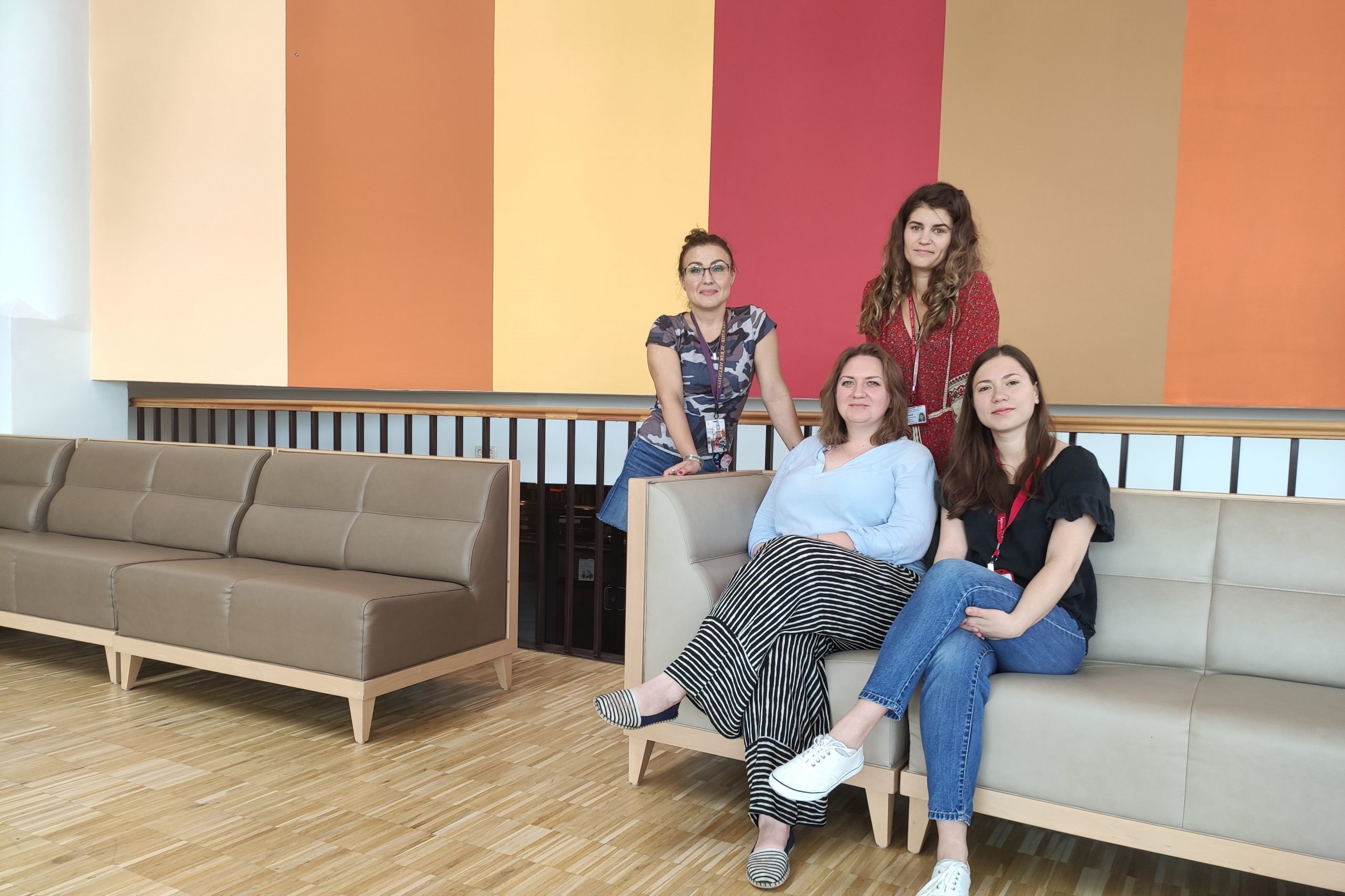Gift of Life spoke to the Podari Zhizn coordinators at the Dmitry Rogachev National Research Centre of Paediatric Haematology, Oncology and Immunology in Moscow to learn that their work with ill children isn’t just about suffering.
Why did you decide to get professionally involved with paediatric oncology?
Elena Gubskaya, Podari Zhizn coordinator at the Rogachev Centre
Elena: I haven’t been working as a Gift of Life coordinator that long, but I’ve already encountered the kind of situations you don’t see in everyday life. I dedicated eight years or so to commercial work—I worked in a bank, an architectural bureau, and a modern art centre. But I couldn’t see the point. I didn’t know why I was doing my job. Was there anything more to it than providing entertainment for people? But charity work is completely different. Even though I haven’t spent that long working in this sphere, I almost immediately saw why what I was doing needed to be done. I can see the results in front of me, the smiles of the children and their parents, and it’s a huge source of motivation and inspiration. I’ve never felt such strong positive emotions anywhere else.
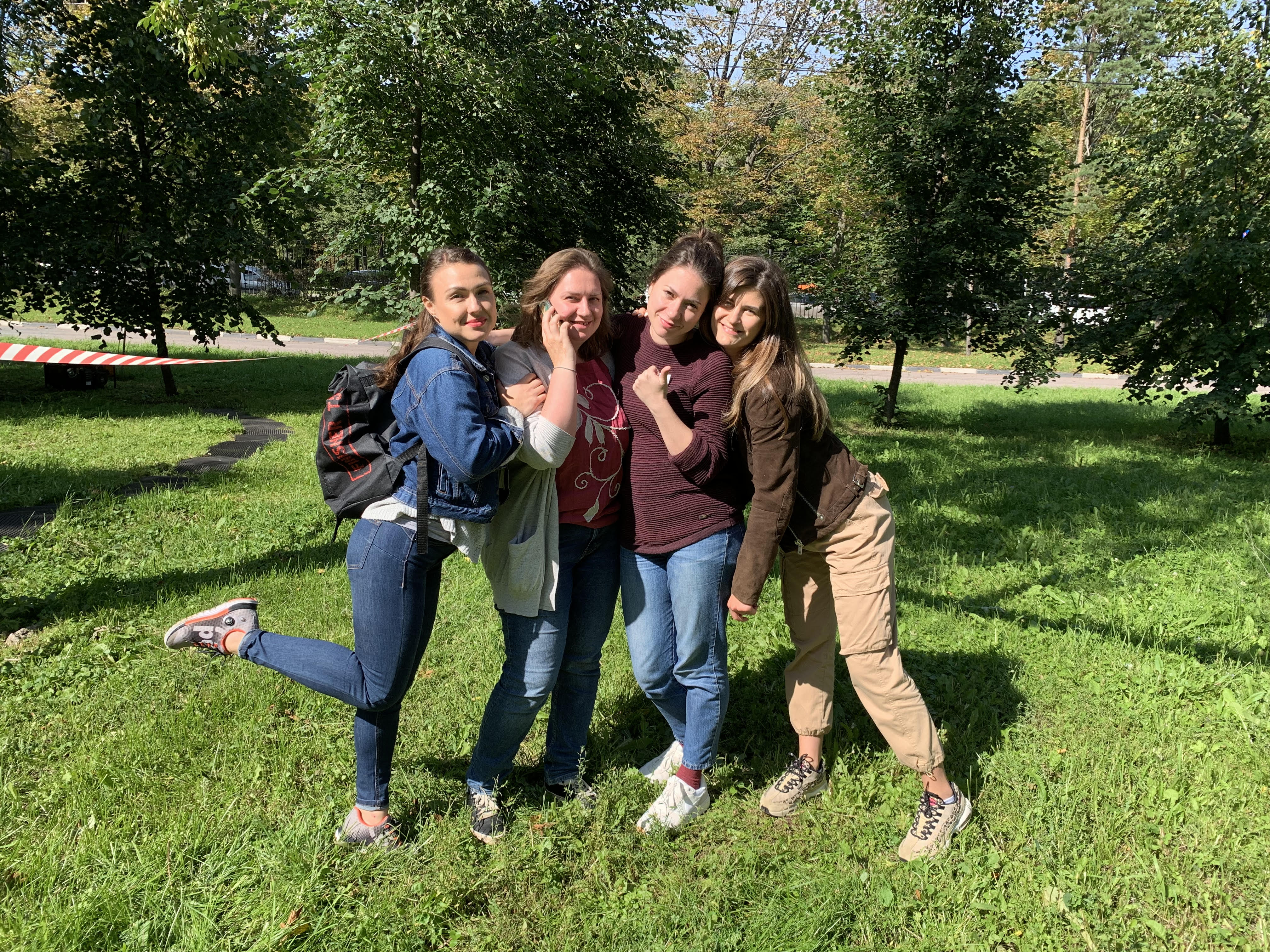
Alesya, Julia, Elena and Ekaterina
What qualities does a coordinator need in a hospital? What skills did you need straight away, and what did you learn on the job?
Alesya Kozlova, Podari Zhizn coordinator at the Rogachev Centre at the time of the interview; since then Alesya has changed departments and works as the Podari Zhizn coordinator for the Miles of Compassion project.
Alesya: This is my eighth year working for the charity. Back when I first became a coordinator, the only thing I was a pro at was handling people. Until then, I was working in the commercial sphere just like Elena. I was a supervisor’s assistant and I was constantly interacting with people. That was the experience I was drawing on when I started.
Gradually, I understood that the main quality of a Podari Zhizn coordinator is empathy, the ability to be sensitive—in a good way—and feel others’ pain as if it was your own. I even began to notice having feelings of empathy outside work. Before, I found it much harder to express emotions in relation to other people. I didn’t always know how to support someone, what to say or what to do, or just how to feel sorry for someone. Now I understand how important it is to support a child, and their parents, and just the people close by who need you to reach out. Many think that what you need most for this kind of work is stress resistance. Sure, you can’t do without it, but I developed that much working in commerce. But I didn’t know how to empathise with others until I joined Podari Zhizn.
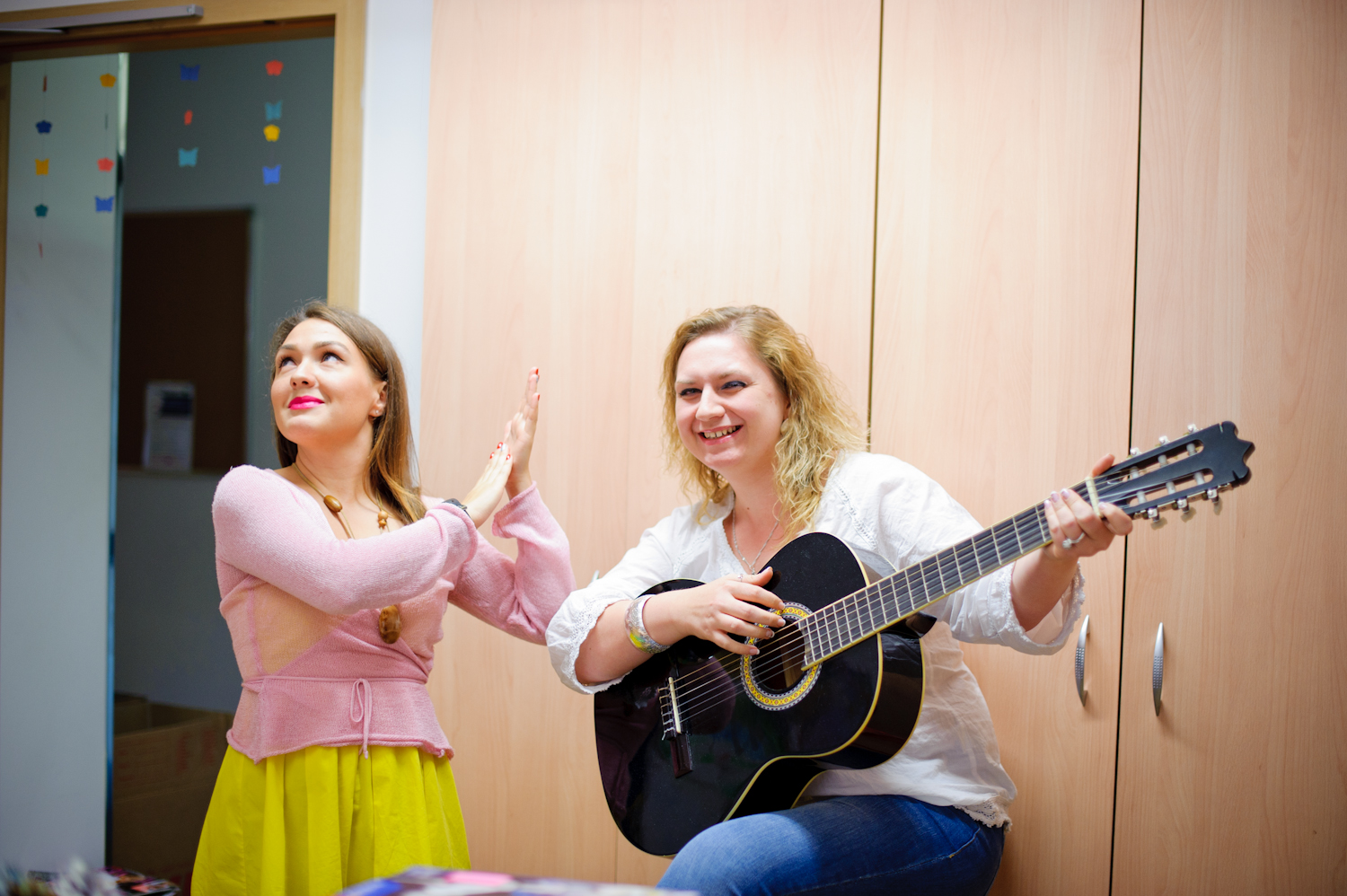
Alesya and Julia at the Centre
Julia Boleyninger, Podari Zhizn coordinator at the Rogachev Centre
Julia: I would say the same. The quality we most need in our work is the ability not to be afraid to be by the side of the people who need it at that moment. Not being afraid to be by their side means helping them no matter your own feelings, even if they’re not always positive, or if you might feel hostile to the person or the situation. This makes everything meaningful, including empathy, stress resistance, and the times you feel unbearably tired. Not being afraid to be with others, to help and support them—that must be what matters most in my work, and what keeps me moving forward in this profession.
So you have to not feel afraid to be by their side so that you can share their suffering?
Julia: You have to understand that our work isn’t just about suffering. Sometimes it’s even more important for a coordinator to share joy, especially when you’re spending time with children. For example, the annual graduation ball at the Centre is an enormous source of joy. We get to share that joy with the children, their parents, and with the volunteers as well. Sometimes it’s hard to tell who’s happier, since getting everything ready for the ball is serious business, and an adventure all of its own.
Sharing people’s suffering is one thing we have to do, but it’s by no means the main one. Of course, sometimes it’s challenging, especially when working with teenagers. You have to discuss their difficult circumstances and their illness, and at that moment it’s important to encourage them, to give them the strength to keep going and overcome the difficulties in front of them. When I first meet a teenager, here’s what I tell them: “Yes, it’s a hospital, you’re sick, and there’s nothing we can do about that. But this is your life, and only you can decide how you’re going to live it.” Unfortunately, there are sad stories too, but even then we still try to help.
When I’m by someone’s side when things are at their worst, I still try to take the edge off the suffering the children in our care have to go through.
What’s the hardest question a child’s ever asked you?
Although I’ve had questions about death, to which there’s no simple answer, the hardest turned out to be the long time I spent talking to someone remotely. This girl had gone home for palliative treatment, meaning she was already dying. It was a difficult kind of communication, without live dialogue, just writing to each other. When we did that, we could be straight with each other, and she didn’t ask about death, or even about why life was so unfair. She asked why everyone was lying to her. Imagine how horrible it must be. A teen is alone in her room, feeling very sick, and she doesn’t understand why everyone is lying to her, even her parents. A few days later, she passed away, and I don’t know to this day whether she and her parents ever had a meaningful conversation. After all, they didn’t want to tell their daughter about her grave condition until the very end. I’d like to believe that they did.
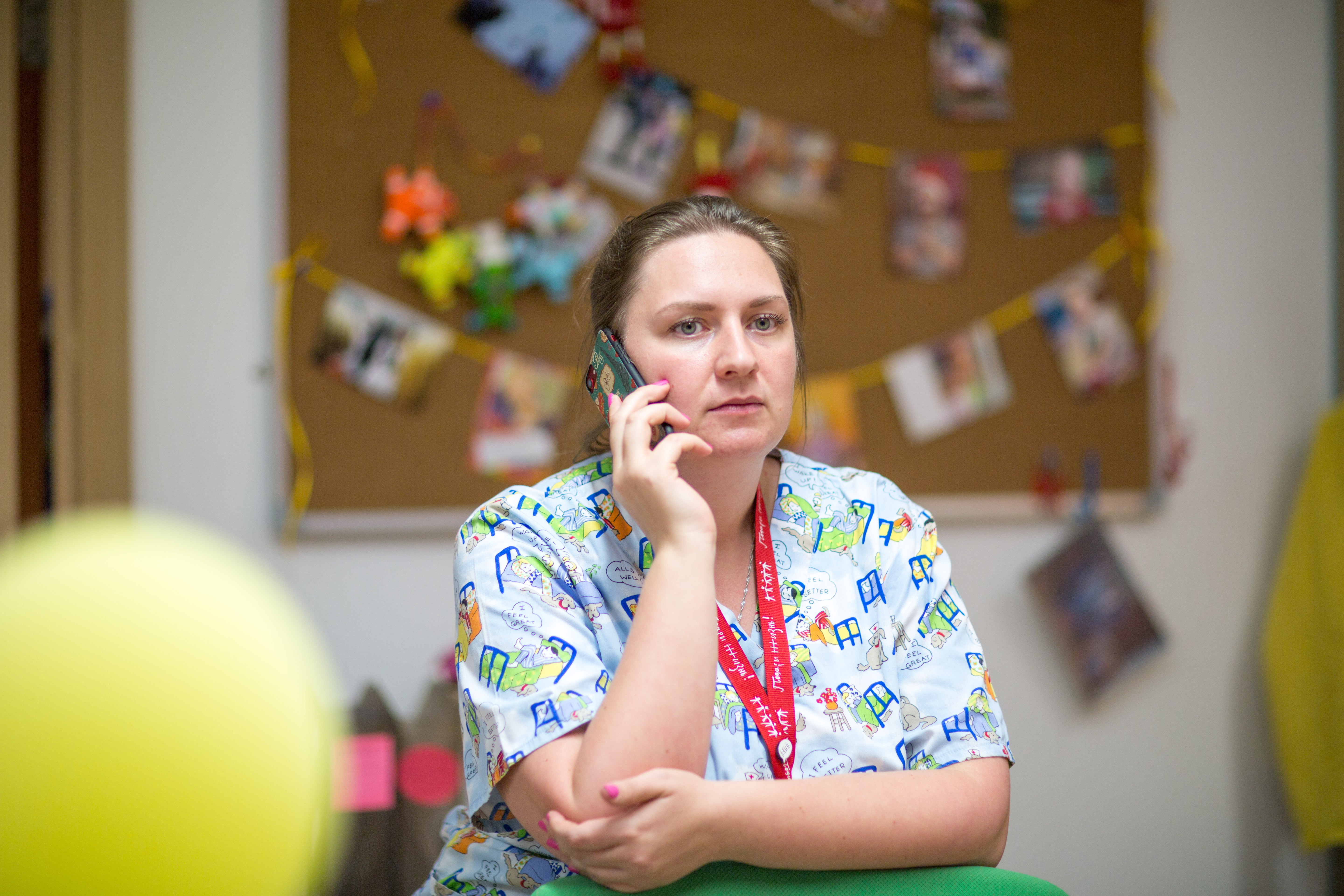
Embracing challenges every day
There was another time in intensive care. A girl was in an extremely severe condition, and the doctors said that, regrettably, she wasn’t going to make it. But she herself held on to consciousness until the last moment. Her mum had to do the impossible—to say goodbye. What made it worse was that the girl asked her to call her dad so she could say goodbye to him as well, and her mum couldn’t make herself do it. We spent several days sitting with her outside intensive care, crying together, and I had no idea how to explain to her, without hurting her feelings as a mother, that she had to urgently call the girl’s father. You have to remember that mothers can ask difficult questions as well, like, “Is she really dying?” And all you can offer her is the doctors’ opinion.
In recent years, I’ve realised that I can be by people’s side, and I don’t have to be afraid. I will do everything in my power to find a way to support them. I doubt I can change anything, I’ve got no illusions about that, but sometimes you have to just be by someone’s side, to hug them or to cry with them.
Still, someone has to do it. Who else can help the parents if you’re not always ready to?
Julia: We have a team of psychologists at the Centre. They’re always ready to help if the doctors or the parents ask them to. Of course, there are cases where the parents don’t want to talk to the “men in white coats”. On the other hand, we just recently had a sensitive situation in the teenagers’ ward. A young man was dying, and his girlfriend was there right outside the intensive care ward doors. His mum was there, and so was hers, and they were all anxious, but nobody knew how to tell the girl that he was dying. Her boyfriend was dying in intensive care, and she was right there and had no idea. How do you tell someone without hurting them even more? That was a case when the psychologists were able to help them.
Of course, if you’re not ready to get involved in such an emotionally painful situation, then it’s best if you don’t. And if you do feel like you have the strength and the compulsion to help, then do get involved, but stay self-aware and in control of any expression of your own weakness. In cases like this, each one of us has to know our exact capabilities, and know in advance if we’re up to it.
Holding parents’ and children’s hands as you go through emotional crises together isn’t in the coordinator’s job description, though I think it must be implied.
It’s hard to make judgement calls in our position as Gift of Life coordinators, since each situation that calls for us to get involved and offer help is completely different. Each one is overflowing with individual worries. This is where every member of our team decides whether they’re ready to involve themselves in the emotional side of the problem, or whether they don’t have the strength or the experience yet. The kind of help people need can vary a great deal too. Some people need you to hold their hand, others need a conversation, and others still just need you to silently share in their feelings. What matters is that it comes from the heart and is completely sincere. There are all kinds of situations, and we’re all different people, and that’s completely normal. It’s at times like these that you understand how vital it is to be part of a team. Sometimes a problem which is beyond you is effortless for someone else.
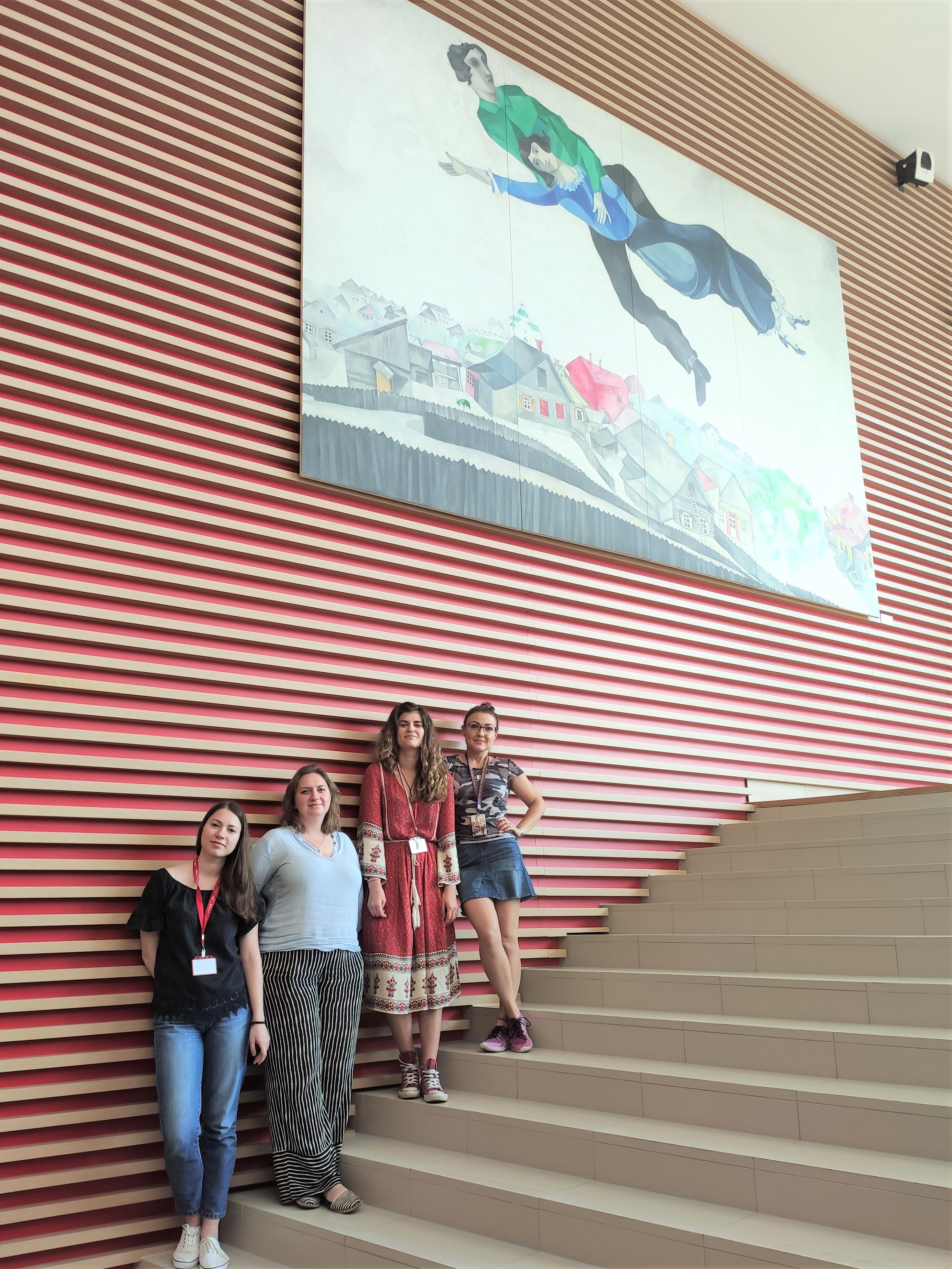
Challenges only stimulate you to work harder, say all four
You’ve described emotionally challenging, draining work. It sounds like you’re constantly doing something self-sacrificing despite your own instincts. Why do you do it?
Julia: There’s a lot you can do when you’re a coordinator at a hospital. Challenges only stimulate you to work harder and give more of yourself. Sure, there are hard days and weeks, but they only fill you with motivation to break the losing streak and keep going towards your major goal. Of course, it’s not always easy to find the positive in what we do, but it’s worth it to try. Sometimes what it takes is creativity. You might find yourself lamenting how awful it is for a sick child, or you might find a way to distract them so they smile and feel warm inside. When you see that happy smile, you see for yourself that it was all worth doing.
That realisation is our pillar of support in this difficult job. It’s something we can push off and keep going, doing what we do.
What’s your most memorable moment or day of the year?
Ekaterina Kamentseva, Podari Zhizn coordinator at the Rogachev Centre
Ekaterina: I remember the tough week when several children were going home for palliative treatment. That was the day one boy came to the hospital. At the start, he was lying in a private room with an infection, all alone, and it was his birthday. Yuliya and I inflated some balloons, wrapped a present, and went to his room. The second we walked in, he was already beaming with happiness. We got talking right away. We asked how old he was, and he gave us this very curious answer. “Just yesterday, I was seven, and today I’m already eight. How time flies.” Yuliya and I were a little fazed and asked the birthday boy to, say, read us a poem. He surprised us even more by reading one with five or six stanzas, all with the right kind of emphasis. Of course, after that, we had to hand him the present he deserved, and when he was unpacking it, all three of us were filled with happiness.
“Mum, this is epic, this is what I’ve dreamed of my whole life! It’s LEGO, it’s epic! It’s the best present I could imagine! What an epic birthday!” He was happy beyond words. It was a tough day, but thanks to that boy, it became epic.
We have any number of fun and exciting stories like that. There was this one time we went to a ward where children stay in isolated rooms if they have complications or infections after a donated bone marrow transplant. We came to see a boy with balloons and a present, and the second he saw them… “There are balloons! Look, Mummy, there are balloons!” We didn’t even need the present. The little boy was bouncing all over the place, not quieting down for a second. “Look, balloons! I’ve got balloons! I’m so happy! Oh, hey, there’s a present! You don’t mean it’s my present? Thank you! Look at the present I’ve got!” He was over the moon as he unwrapped it.

A simple thing like balloons can make a child in the hospital really happy
I love picking out presents for children. You wonder whether it’ll suit them, and whether they’ll like it. Then you have to wrap it so it looks good, and inflate the balloons. Often the children never expect that today they’re having a birthday with presents rather than an ordinary hospital day. When you give a child a special experience like that, and you see how happy they are, you feel genuine happiness yourself, and it becomes an epic day.
There was one more interesting case. This girl Katya liked a certain band, and one day, the musicians came by to visit her. They sang for her, and played the guitar, and she was overjoyed. And then one of them hugged her goodbye, and she was so overwhelmed she nearly fainted with happiness. After all, it was the event of a lifetime. It’s so great when a child has a wonderful day like that.
Were there any times when you were really surprised?
Julia: There was an 18-year-old girl called Anya who came to Moscow from the UK for a summer visit, and she came to the hospital wanting to help out as a volunteer. At first, I was highly sceptical. Why would someone come here from the UK for their summer holiday and want to spend their time in a hospital? But the more time we spent together, the more I understood: in Britain, it’s a matter of course to help not only friends but complete strangers, and to volunteer in hospitals, homeless shelters, and all manner of places. The most important part is that it’s all genuine and natural. I watched Anya and saw how satisfied and self-sacrificing she was in her volunteer work, and how she gets to know the children and spends time with them. It was amazing. This one time, Anya drew one of the girls in our care a picture and sent it with a letter, and the girl sat there in her wheelchair and was delighted to recognise Anya from the way she wrote. It really is true that it doesn’t matter where you are, whether in Moscow or Britain, there are so many ways to help. Sometimes all it takes is a few lines of writing to distract a child from their treatment and brighten up their day.
Text: Zinaida Berezovskaya, Marina Mosyakova

